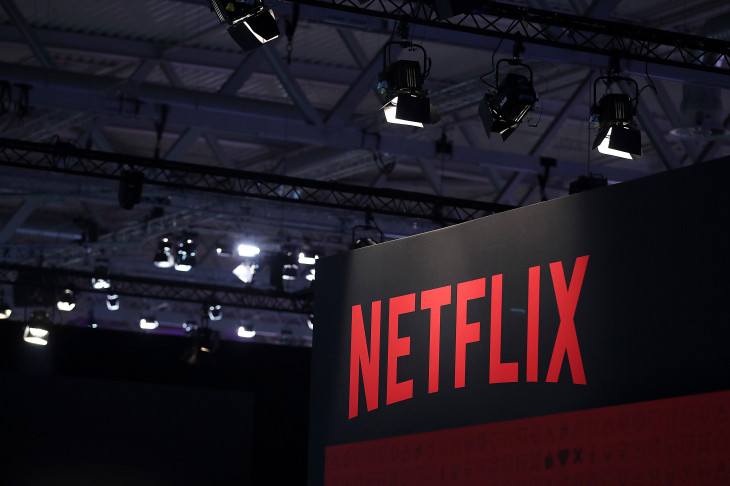Netflix has been wooing Nollywood stylishly for a while now; from streaming Nollywood movies from as early as 2016 to purchasing Genevieve Nnaji’s ‘Lion Heart’ in 2019.
On Tuesday, Feb. 26, Netflix officially announced its presence in Nigeria and the response since has been positive, as expected. Filmmakers are already counting their returns, writers excited that they will finally be paid better and actors reeling over the possibility of worldwide recognition.
The next couple of months will be identical. Filmmakers trying to pitch their ideas to the network; a large feeling of elitism will reign over the creatives already commissioned and the ones not called will be made to feel left out.
Somehow, Nollywood executives and actors will price their worth on whether they are being contacted by Netflix or not. Contrary to popular opinion, Netflix is not the new bride in town, it is hustling for the market the same way every other stakeholder is.
Is it wrong to be excited? Does this not mean that Nollywood has become so well-placed globally that even Netflix is parleying with its talents? The excitement is not wrong and it is understandable but it should not deviate the attention of Nollywood executives from developing and owning the industry on their terms.
While the world is thinking about how Netflix is hurting the revenues of cinemas, Nollywood has issues beyond this. Already, Nollywood had an average of 20,000 people visit the cinema weekly in 2019, losing the remaining 70 per cent of the audience to Hollywood.
The industry has been struggling to build its own identity and audience base. It is at this point where although it is clear what the Nigerian/Nollywood identity is, we are leaning on the outside world for confirmation. At this time, the industry needs to recognise its powers and use the same, leading Netflix through the market and not the other way around.
In context, reports have indicated that Netflix wants at least five million subscribers on the African continent by 2025. Analysts also predict that the market for streaming in sub-Saharan Africa will surpass one billion dollars by 2024.
To do this, the company would need data on consumer behaviour, which Nollywood filmmakers have been trying to curate for years. Instead of rallying around a small unit with Netflix, this is the time to expand the industry as the data is being collated.
First, a close analysis of Netflix’s works in new markets shows that the company is more interested in how sentimental value will increase subscribers rather than quality. There is a standard quality but it is nothing that the industry would have been unable to do on its own.
In a Fortune article, journalist Michal Lev-Ram narrated how the French critics had poorly received the storytelling in the Netflix French-language film, ‘Marseille’.
He, however, wrote “Whether Sérisier thinks Marseille is more merde than merveilleux doesn’t necessarily concern (Ted) Sarandos. What does concern Sarandos is making sure the series ultimately gets more subscribers to sign up for the company’s streaming service.”
Ted Sarandos is Netflix’s, Chief Content Officer. During the Netflix launch in Nigeria, he said, “I have learned so much in the very short time we have been here…(and) I have just been thrilled to be surrounded by some of the most creative and successful creators in the world here in Nigeria, telling your stories to the world. And that’s the thing that’s most exciting about…what we’re doing in Africa, and what we’re doing in Nigeria.”
Netflix will ultimately attempt to tell stories they will presume are Nigerian, according to information they will be fed. It is necessary for the information givers to resist the temptation of developing stories that they think Americans will like but Africans will find difficult to connect with. If a film is American, let it be. If it is Nigerian, let it be.
Lessons should be taken from the company’s first African-produced series, ‘Queen Sono’. The South African Netflix production, is not African. It does not uplift the continent nor tell the stories the way Africans tell them. It is a whitewash American project and story cloaked in the names and Kente/Adire/Ankara of the African continent.
In the end, it resonates with nobody –neither the American nor the African audience. The series screened at the Pan African Film Festival (PAFF) where most critics saw through the disguise. Will this be the fate of the Nigerian produced series?
Netflix has carefully gotten the leaders of home-based television and cinema on its side. This is a carefully played distraction that might shift focus from developing the industry independently to producing based on the whims and directions of the foreign company if care is not taken.
Nonetheless, there are ways the industry can recalibrate and make the best out of Netflix entrance into the market. The most important is carefully outlining what the Nigerian and African identity is, away from pop culture noise and developing contents that reflect this.
As the first greenlit untitled series, to be directed by Akin Omotosho is underway, it is important to remember the real identity of Nigerians. The untitled project is a sci-fi drama series set in modern-day Lagos.
The story is about a goddess who is reincarnated as a human being to avenge her sister’s death, but must first learn how to harness her superpowers for good. One can only hope that it would not be another ‘Queen Sono’.

